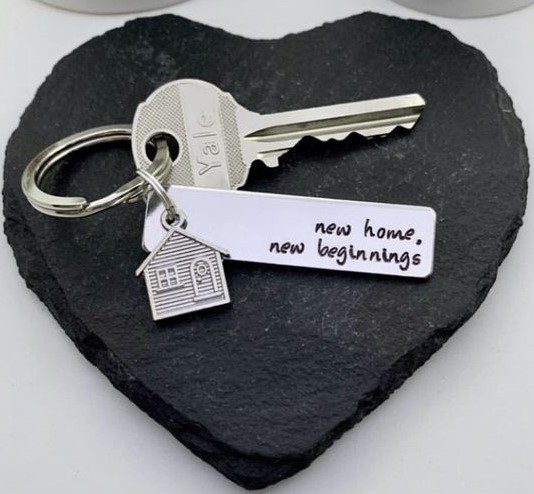Around the same time that we started our “two weeks of lockdown measures” back in March of 2020, the government went into crisis mode. No one knew how the COVID-19 pandemic would impact the country, but one thing was for sure, the government had to act fast and take preventative measures to protect our economy.
One of those measures was to slash the Bank of Canada’s overnight interest rates to practically zero. As a result, Canadians had the ability to easily borrow money to get through the difficult period. However, an unexpected effect of this was the sheer number of Canadians choosing to enter the real estate market with record-setting mortgage rates.
And can you blame them? With rates like this, the bank was practically paying you to take out a mortgage. But the honeymoon phase wasn’t going to last forever, and we all kind of knew that rate hikes were coming soon.
Well, that time is finally here. We had a mini increase of 0.25% in March, but just a few weeks ago we were hit with a whopping 0.50% increase–the last time we saw a rate hike that big, Brad and Jen were still together and the biggest thing on TV was the very first season of Survivor. It was 22 years ago in the year 2000. We used our Blockbuster cards more than our cell phones. What a time to be alive!
The Bank of Canada is calling for even more increases over the next year, which has a few people panicking. But is there any reason to be scared of upcoming interest rate hikes? Let’s take a closer look.
Get the latest tea on the real estate market and topics you care about when you subscribe to my YouTube channel here!
Why Are the Interest Rates Going Up?
Before we understand how it’s going to impact you, it’s a good idea to understand why these increases are happening in the first place. Long story short, when the pandemic first started, interest rates were lowered to help preserve our economy and protect us during a time of uncertainty.
This was always a temporary thing. As the economy began to recover, the low-interest rates caused inflation to creep up. Have you seen the price of butter lately? Inflation is a good thing in small doses. As the level of inflation increased past the Bank of Canada’s projections, it became clear that the time was right to start increasing the overnight interest rate.
Let’s Talk Money – How Will the Rate Hike Hit Your Wallet?
Talking about the Bank of Canada’s overnight interest rate might sound like an obscure concept. And that in itself can make anyone feel uncertain and worried. An increase in the overnight rate trickles down and impacts the prime rate, which is the rate that banks use in consumer products like mortgages, lines of credit, and more.
So if the prime rate goes up, that means your payments will go up too, right?
Well, maybe. We’ll get into more of that later on.
The current prime rate at the writing of this blog is 3.25%. Historically, that interest rate is aligned with what we were paying before ‘coronavirus’ became a regular part of our lingo. In 2018, the interest rates were at 3.95%.
For some peace of mind, you can look at it this way. A 0.50% increase like we have seen recently, equals about $26 per $100,000 of mortgage debt. So if you have a $500,000 mortgage, that’s about an extra $130 in interest payments–or about two bottomless brunch weekends–per month.
It’s not so bad when you think about it that way, right?
The Toronto housing market has been hot, hot, hot. Whether you’re buying or selling, it can be a challenging time for anyone. Check out these blogs to learn more about finding your flow in the Toronto real estate scene:
- To Buy First or Sell First–THAT is the Question
- Buying a Home in Toronto in 2022: Mission Impossible?
- Is Thing Thing On? 4 Reasons Why Your Home Isn’t Selling
But There’s Something Else You Need to Know About Mortgages
The rates are still low. Still some of the lowest on record. Truthfully, the panic surrounding the rate increase probably has a little bit to do with our public perception. We’ve spent the past two years paying practically nothing to borrow money, we’ve been sitting at home, our favourite stores and restaurants moved online, and our spending habits changed drastically.
The Bank of Canada typically aims for a ‘neutral’ range of 4.2% – 5.2%, so with a certain level of confidence, we can say that you should expect to see increases until that range is met.
Now, although we know where they are aiming, we don’t know how long it will take them to get there. Many mortgage experts are predicting that there will still be 7-8 rate hikes over the next couple of years to stabilize things.
So how will this affect your mortgage? The answer depends on the type of mortgage you have.
Fixed-Rate vs. Variable Rate: An Epic Battle
When it comes to getting a mortgage, there are two main options that Canadians are faced with. Both have their own set of pros and cons, and both are better for someone depending on your unique situation. Here’s a quick breakdown:
Fixed-Rate:
- Your interest rate is locked in for the entire term of the mortgage.
- You will have more stable mortgage payments each month because your interest rate is not determined by fluctuations in the prime rate.
- Fixed-rate mortgage rates are determined by bond yields, not prime rates.
- You will typically pay a higher interest rate than you would with a variable rate mortgage, but the main benefit is peace of mind and stability.
- If you wish to terminate your mortgage, make extra payments, accelerate your payments, or switch to a variable rate, you may be required to pay steep fees.
Variable Rate:
- Your mortgage is determined by the prime rate and fluctuates during the term.
- Depending on your mortgage contract, your monthly payments may go up or down.
- There is less stability, but you will likely save more money in the long run.
- There are fewer fees to pay if you decide to make changes to your mortgage product.
- Historically, Canadians save more money and pay off their homes faster with a variable rate mortgage.
We also need to acknowledge that the type of mortgage you get is completely dependent on you. There is no one-size-fits-all solution. Your decision depends on factors like your risk tolerance, your financial situation, your overall real estate goals, and other considerations. Are you planning to sell the home soon after buying? Are you hoping to tap into the equity in a few years? All of these factors come into play when deciding on a mortgage type.
Everybody knows someone in real estate. The real question is, should you hire your bestie to sell your home? Find out on our blog right here.
Don’t Forget to Read Your Mortgage Contract!
While most fixed-rate and variable mortgages in Canada follow the same guidelines, it’s important to also read your mortgage contract. Different lenders might have different products and processes that could make a big difference when it comes to your monthly payment.
For example, some lenders have a clause in their variable rate mortgage that will keep your monthly payment stable but will allocate your payments between interest and principal accordingly depending on the interest rate.
The main thing that changes with this type of mortgage is amortization. However, you can certainly plan ahead and accelerate your payments to pay more off sooner so you’ll pay less interest later on. Mortgage pros call this “front-loading” your mortgage, and it’s a great strategy for paying it off faster.
Why Your Mortgage Consultant is Your New BFF
Whether you’re in a fixed or a variable mortgage, one thing is for sure: rates will continue to rise. And no matter what goals you have for the future, you need a mortgage strategy that will fit your lifestyle and needs.
That’s where a mortgage broker/consultant comes in. These professionals work with clients and lenders, giving you the best advice across the industry about what exactly you should do to reach your financial goals. It’s more than just making a monthly payment in exchange for your house.
I always recommend Rahkee Dhingra from Mortgage Savvy for my clients, she takes an individualistic approach to mortgage lending, ensuring that you have everything you need. Do you want to pay off your mortgage quickly and aggressively? Rahkee has a plan. Do you want a long amortization with the most affordable and stable payments? Rahkee knows what’s up.
With someone like Rahkee on your side, even renewing your mortgage during a period of aggressive rate hikes (hello 2022!) is easy. And the best part, you can save a bunch of money and pay your mortgage off sooner–if that’s what you want to do!
The main takeaway here is that the Bank of Canada rate hikes are not as scary as the news wants you to think. It’s just business as usual.
If you’re still feeling unsure and you want to chat, you can always call or text me at 647-973-8392 or subscribe to my newsletter and be the first to know about the latest real estate news here.





